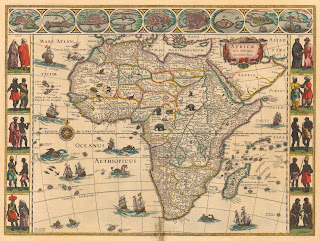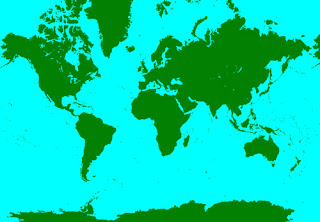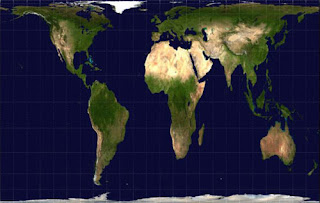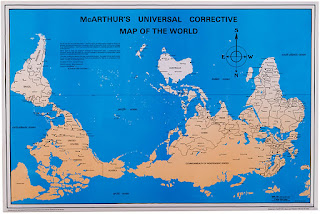This blog is maintained by the 10th grade African History class at the Berkeley Carroll School in Brooklyn, NY. The views expressed here reflect the opinions of individual posters and not necessarily those of the Berkeley Carroll School or the course instructor.
Friday, May 24, 2013
Resources for Rwanda Review
Here's a 12 minute podcast of Philip Gourevitch, author of the New Yorker article about Kagame and the book We wish to inform you tomorrow we will be killed with our families, discussing Rwanda 15 years after the genocide.
Chris mentioned the documentary Worse Than War in class today. The entire film is available here. Alternatively, if you wish to jump right to the section on Rwanda, go to this clip and skip to the 7:30 mark.
If you would like another source for review of the Rwandan genocide, there is some good information on the Kigali Genocide Memorial website.
Finally, the Genocide Archive Rwanda has some very good review information, including a trove of powerful images.
Tuesday, April 23, 2013
HIV/AIDS in South Africa
We've just concluded our unit on HIV/AIDS in South Africa. Post to comments either one reflection - some aspect of the disease or epidemic that continues to make you think - or one lingering question. The question, too, can be about the disease itself or the epidemic.
Thursday, January 31, 2013
The Scramble for Africa
Here is a cartoon and some text excerpted from the document signed at the Berlin West Africa Conference in 1885. Imagine you were the lone African representative at the conference, and assume that you couldn't have single-handedly stopped the carving up of the African continent. What would have fought for? What would your priorities have been?




Monday, January 28, 2013
Expedition Africa
Last week we learned about explorers in Africa, including Dr. David Livingstone. Today, we played the online game Expedition Africa, which simulates one of Livingstone's expeditions. How far did you get? What were the greatest challenges? Did anything surprise you? Was there anything the game didn't take into account that you would have? Post responses to comments, and take the time to read and respond to each other's comments.
Thursday, January 10, 2013
Maps
Here are a few of the maps we looked at in class. What do you find interesting here? Looking at them now, and reflecting on our discussion, how do maps shape or reflect our understanding of the world? Of Africa? How can they create or reinforce "the single story"? Please comment below on at least two maps.
 |
| 1. Erbstorf Mappamundi, 12th Century |
Tuesday, January 8, 2013
Chimamanda Adichie: The danger of the single story | Video on TED.com
Watch this talk by Nigerian writer Chimamanda Ngozi Adichie (about 18 minutes long) and comment on the following question:
If you were going to write the single story of Brooklyn, what might it include? What might it exclude?
If you were going to write the single story of Brooklyn, what might it include? What might it exclude?
Monday, January 7, 2013
About This Blog
This blog is part of a semester-long 10th grade history course at Berkeley Carroll. Time constraints make a thorough study of Africa's long and rich history impossible, so ours is a selective journey, focusing mostly on historical issues in Congo, South Africa and Rwanda, with some attention to contemporary issues like HIV/AIDS and the debate over international aid vs. local solutions to problems. By the end of the course, we hope to be able to answer questions like:
1. How can geography affect the course of history?
2. What is the legacy of 19th and 20th century imperialism in 21st century Africa?
3. Why have efforts to establish democratic government succeeded in some parts of Africa but failed in others?
4. How and why has violence been used as a tool to effect change in Africa?
5. How is identity constructed in Africa? Is there such a thing as an African? Is identity based on one’s country? One’s ethnic group? Is it imposed from outside? Does it depend on the circumstances?
Students will use this blog to reflect, challenge and pose questions in response to readings, films, museum exhibits, and items they come across in the newspaper or on television. We invite you to participate in these discussions as well; all we ask is that you be respectful of of the fact that this is a new topic for most of us, and we're using this space to share and test ideas rather than offer expert opinions. Thank you!
1. How can geography affect the course of history?
2. What is the legacy of 19th and 20th century imperialism in 21st century Africa?
3. Why have efforts to establish democratic government succeeded in some parts of Africa but failed in others?
4. How and why has violence been used as a tool to effect change in Africa?
5. How is identity constructed in Africa? Is there such a thing as an African? Is identity based on one’s country? One’s ethnic group? Is it imposed from outside? Does it depend on the circumstances?
Students will use this blog to reflect, challenge and pose questions in response to readings, films, museum exhibits, and items they come across in the newspaper or on television. We invite you to participate in these discussions as well; all we ask is that you be respectful of of the fact that this is a new topic for most of us, and we're using this space to share and test ideas rather than offer expert opinions. Thank you!
Subscribe to:
Posts (Atom)







